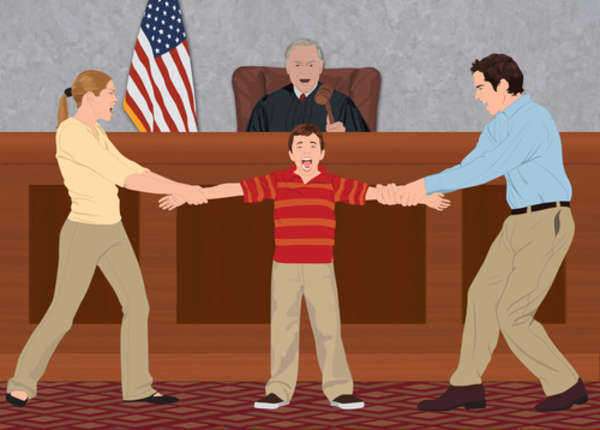Understanding Altruistic Surrogacy







A guardian ad litem is a court appointed attorney who is
responsible for analyzing the facts surrounding specific cases and taking a
position on guardianship authorization.
They will determine what is in the child’s best interest and
ascertain who they believe should be granted child custody before the
guardianship order is announced.
The guardian ad litem is not a legal guardian that
receives custody of a child. They receive no rights regarding the upbringing of
the child; they only
investigate the details of the case in order to authorize the guardianship
order.
The guardian ad litem is especially important in
cases of divorce, in which the parents are unable to agree on the custody of
their children. Usually, the court will promote negotiation in order to reach a
conclusion in such instances. However, if this is not feasible then the
court will appoint a guardian ad litem to assist in guardianship authorization.
The guardian ad litem may converse with both the parents
and the children
to ensure
parents effectively manage their anger before the court will provide
guardianship authorization. Other factors that will be taken into consideration
include the physical and mental health of the parents, whether or not a parent
has a history of drug or alcohol abuse, and whether the
environment that each parent is offering would be a stable and safe place for a
child to grow up in. They will make a note of any factor that may be relevant
to the health and the well-being of the child.
Each
parent’s financial situation may also be taken into account. Once the guardian
ad litem has gathered and analyzed all of the facts about the case, the judge
will make a decision about who will be granted custody of the child.




Appointing
the guardianship of a minor is a very sensitive
and delicate situation. It is extremely important that the individual that is
granted the responsibility for the guardianship of a minor is a capable, caring
and dependable adult. Legally, any individual who has reached the age of eighteen
and is a citizen of the United States is
permitted to obtain guardianship of minors.
A judge will usually appoint a
relative of the child or a close friend of the family to undertake the
guardianship of a minor. Often, a prospective guardian will be an aunt, uncle,
grandparent, cousin, or an older brother or sister. However, being a friend or
a family member does not automatically entitle an individual to acquire the
guardianship of minors. It is important that these potential guardians possess
certain qualities and characteristics, as well as meet certain criteria.
Before the guardianship of a minor is appointed, there are certain
elements about the guardian’s character that must be addressed and examined.
The most important thing that
needs to be considered is whether or not the proposed guardian is responsible
enough to handle the guardianship of minors. The individual that is being
considered must be dependable.
Another primary concern is whether or not the individual that is
being proposed to obtain the guardianship of a minor loves and cares for the
child. A guardian must have the child’s best interests at heart.
Any individual who is seeking to assume guardianship of minors
should be financially stable. A guardian will need to be able to provide for
the child. A person seeking to undertake the guardianship of minors should
themselves be in good physical and mental health. The proposed guardian should
not have any severe health problems that may interfere with their ability to
care for the child. Other considerations that may be taken into account when
appointing guardianship of minors is if the potential guardian has strong
values and morals and be able to provide a good example to the child.
Before authorizing the guardianship of minors to an individual,
the judge may take into account the location of the proposed guardian. Ideally,
living with the proposed guardian would continue to allow the child to have the
ability to visit with their family members and their friends. The condition of
an individual’s house and home life will also be taken into account when
appointing the guardianship of minors. The proposed guardian should be able to
provide the child with a safe and stable environment in which to live.
In most cases, a guardian should not be someone who has a criminal record or
a history of violence, abuse or neglect. A proposed guardian should be an
individual who can raise a child with the child’s well-being in mind. A
guardian should be someone who is responsible, caring, wholesome, healthy, and
trustworthy.